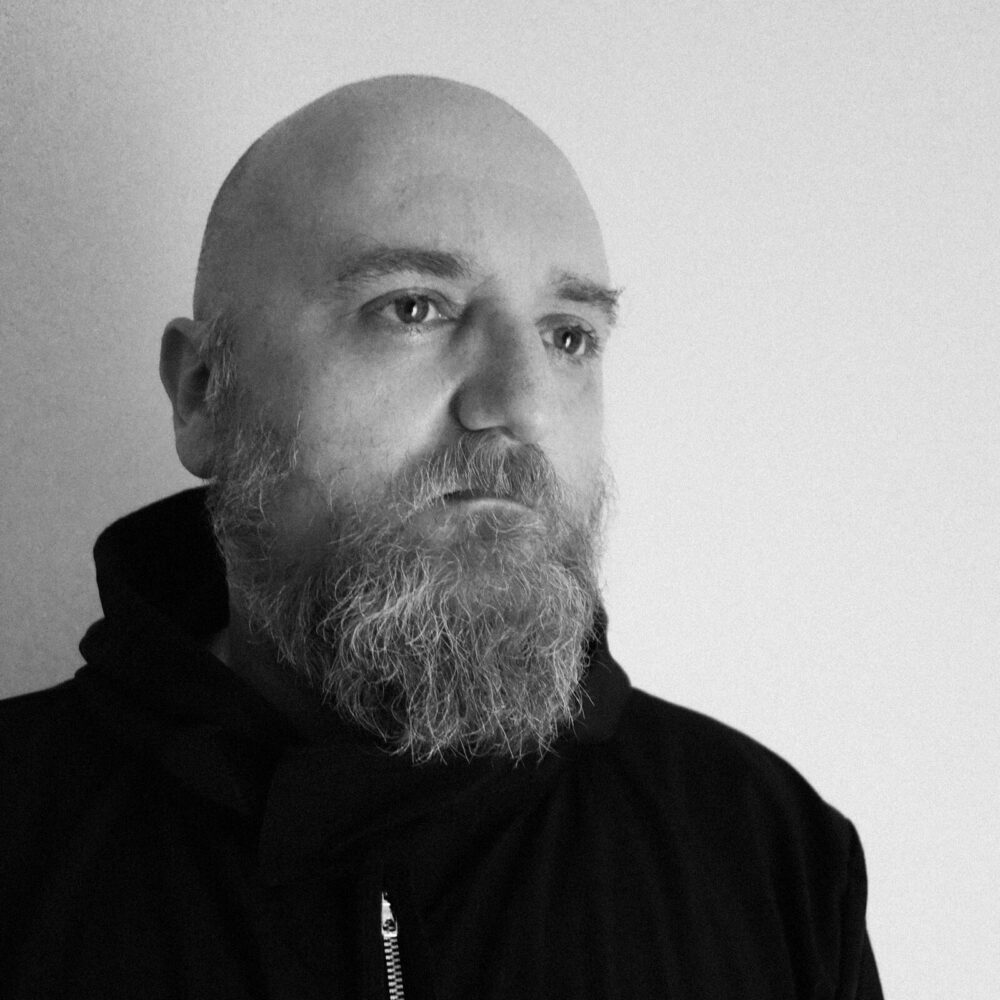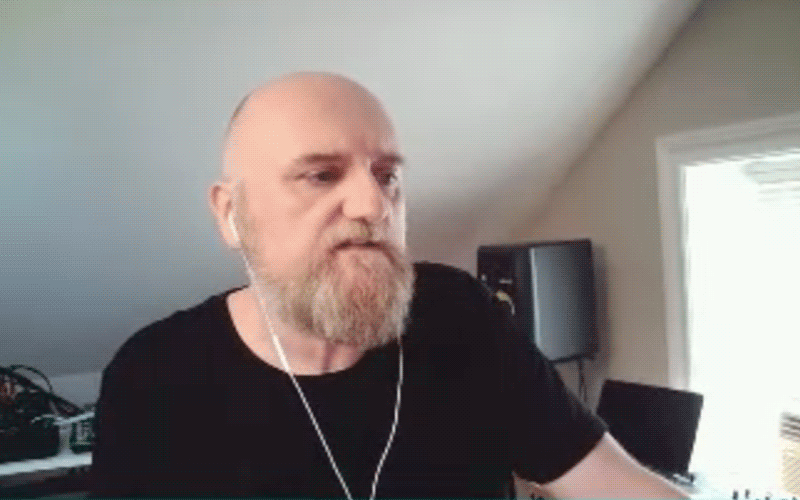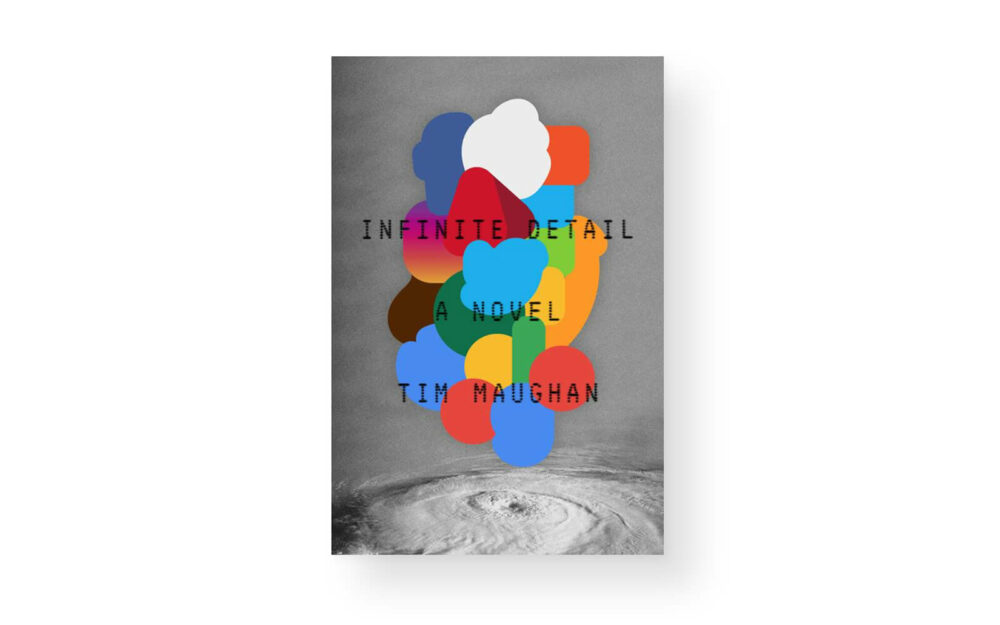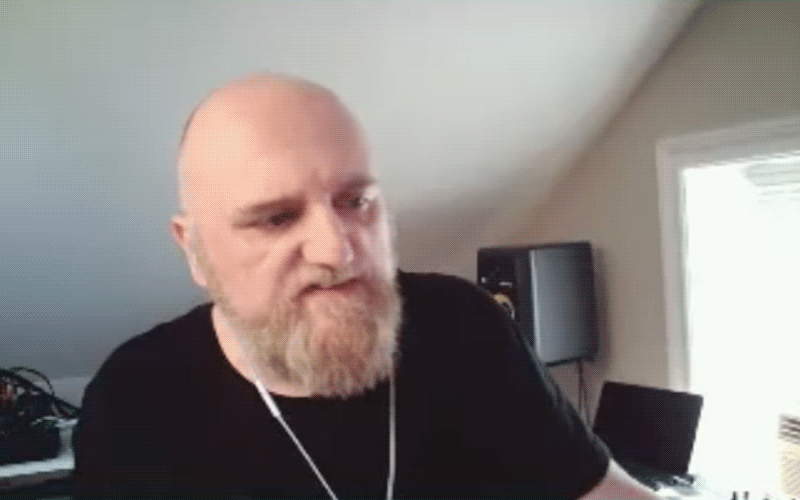← Explore
The MUTEK Recorder
Episode 07: Tim Maughan
Speakers:
Claire L. Evans
Tim Maughan

Profile:
Tim Maughan
Hailing from the UK and now based in Ottawa, Tim Maughan traces the contours of contemporary phenomena including logistics and complexity as a journalist and technology pundit, which informs his science fiction. His debut novel Infinite Detail (2019), which wryly imagined a post-internet future, was heralded as Sci-Fi book of the year by The Guardian. He has also written screenplays for the experimental short films Where the City Can’t See (2019) and In Robot Skies (2018), both directed by Liam Young.
Soundbite:
“With new technology or emerging trends I always ask myself this simple question: what could possibly go wrong? It’s become my slightly sarcastic and tongue-in-cheek mantra for thinking about the future.”
Tim Maughan, on a simple and effective way to speculate (pessimistic) futures
Soundbite:
“I want to push back against Silicon Valley optimism which takes science fiction imagery and uses it to sell products and ideas, but minus the critical reflection that good science fiction always provides.”
Tim Maughan, on how Big Tech reduces big ideas to mere marketing
Book:
Published in 2019, Tim Maughan’s debut science fiction novel Infinite Detail flips the table of platform capitalism and delineates a post-internet world. In the same way his earlier short story collection Paintwork riffed on and extrapolated based on what was happening in augmented reality over the last decade, here Maughan projects from the stormy media post-Trump and -Brexit media environment. While things get dire in what emerges from the rubble, Maughan ends with optimism, imagining new decentralized networks growing like weeds.
Soundbite:
“One of the ways it bubbled up and out of me into public view was on Twitter, where, for a number of years, I maintained an ongoing Twitter thread that retweeted wide-eyed tech news headlines, with the added question: ‘what could possibly go wrong?’”
Tim Maughan, on turing tech cynicism into laughs and retweets
Reference:
More method than catchphrase, “what could possibly go wrong?” is something Tim Maughan asks a lot. Not a fan on myopic ‘tech optimism’ emanating out of and responding to Silicon Valley, he began using the question generatively. Following Frederik Pohl’s adage “a good science fiction story should be able to predict not the automobile but the traffic jam,” Maughan looks at a tech story—AI, CRISPR, self-driving cars—and imagines outcomes ranging from banal to horrific. The exercise became a long (now deleted) twitter thread, that Maughan revisited—and resurrected—in 2020 for a HOLO-curated workshop at Poland’s Digital Cultures Festival. Under his direction, 30 participants engaged in speculative headline writing by looking at choice articles from Maughan’s collection and asking: “what could possibly go wrong?”
Soundbite:
“Defenders of entrepreneurs like Elon Musk demand that we remain respectful and quiet, as tech innovators and disruptors save the world. Asking ‘what could possibly go wrong?’ is an act of defiance. It’s a way to see through capitalism’s hype cycles.”
Tim Maughan, explaining that, no, Elon Musk is not in fact Tony Stark
Soundbite:
“Companies pay people to come in and say ‘everything is going to be great.’ I offer a radically different service to that. It was a hard sell for a while—until Trump came in. Now I get more business.”
Tim Maughan, on how his design consultancy has pickup in recent years



